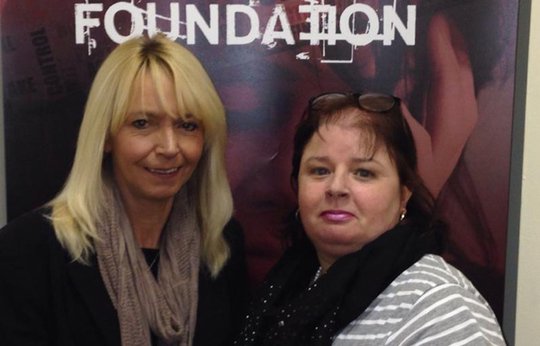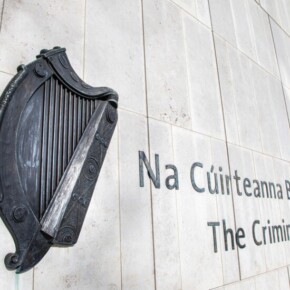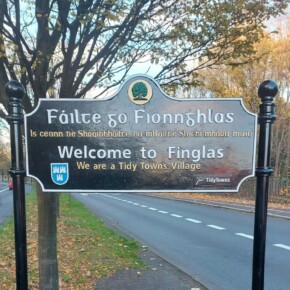‘Make it a crime’
Dublin People 08 Mar 2014
A NORTHSIDE based service for victims of domestic violence founded by two local women is calling for incidents involving abuse in the home to be criminalised.
Rita Harling from Finglas and Priscilla Grainger from Navan Road who founded Do or Die Foundation in February 2013 say many victims are shocked when they learn that domestic violence in itself is not a crime.
Incidents are currently covered by the Domestic Violence Act (1996), which allows victims to apply for barring, safety or protection orders. Acts of violence fall under general legislation but as domestic violence victims are often too terrified to make a complaint gardai are usually powerless to make arrests unless they witness an attack and prosecutions are rare.
“A lot of domestic violence victims won’t follow through and have the partner arrested so abusers are not being held accountable for their actions,
? Rita told Northside People.
“If you hit somebody in the street, you’ll be arrested, you end up in court and you get a conviction. You hit somebody in the home, nothing happens.
“The gardai will arrive if you ring them but nine times out of ten the victim’s not going to call the police out of fear. But if it’s criminalised and the guards are called by a neighbour who hears a commotion and knows somebody is being injured, then it can be treated like a crime and the guards are going to a crime scene.
“That’s what domestic violence situations are, they’re crime scenes. There’s somebody being badly injured.
“It’s a basic human right for anybody, male or female, to be protected, and domestic violence victims don’t have that at the moment.
?
Do or Die’s call for criminalisation came in a week when the Violence Against Women report by the European Union Agency for Fundamental Rights (FRA) was published.
The report found that more than one in four (26 per cent) of Irish women have experienced physical or sexual violence by a partner since the age of 15.
It also found that almost one in three Irish women (31 per cent) had experienced psychological violence ranging from controlling behaviour to threats of violence.
Last month the Do or Die Foundation made submissions to an Oireachtas Justice Committee hearing on domestic violence and the legislative changes needed to protect victims.
The Foundation says it felt its submissions were well received and is confident legislation will be changed later this year.
“It has to change, but I think they’re looking at this really closely and something will happen soon,
? Rita said.
“They were looking for solutions to the problem and we brought a couple of ideas in with us.
?
Do or Die Foundation says Ireland should look across the Atlantic to New York where first generation Irish American deputy police chief, Kathleen O’Reilly, is leading the fight against domestic violence.
Last year there was a 28 per cent reduction in Domestic Violence homicides in the US city where police officers assigned to the domestic violence unit make a total of 70,000 precautionary visits a year to households with past episodes.
Meanwhile, Dublin Labour MEP, Emer Costello, who attended a seminar on
‘Violence against Women in the EU’ at the Mansion House last week called on the Government to ratify the Istanbul Convention on preventing and combating violence against women, including domestic violence.
“One in five women in Europe will experience violence during in their lifetime and domestic violence has a higher rate of repeat victimisation than any other crime,
? she said.
“In Ireland, a shocking 73 per cent of women experiencing violence in the home said their children were exposed to it.
“The Government has accepted, in principle, the terms of the Istanbul Convention in 2011 but has yet to sign the Convention and there has been little progress on ratifying it.
“Since it opened for signatures in May 2011, 32 Council of Europe member states have signed the Convention but only eight have ratified it to date. It requires ten ratifications to come into force.
“I would urge Minister Shatter to treat this matter with greater urgency and make the ratification of the Convention and adoption of appropriate legislative measures to give it effect an urgent priority for this Government.
“By doing this, Ireland can demonstrate that it is truly committed to eliminating violence against women and girls.
?











